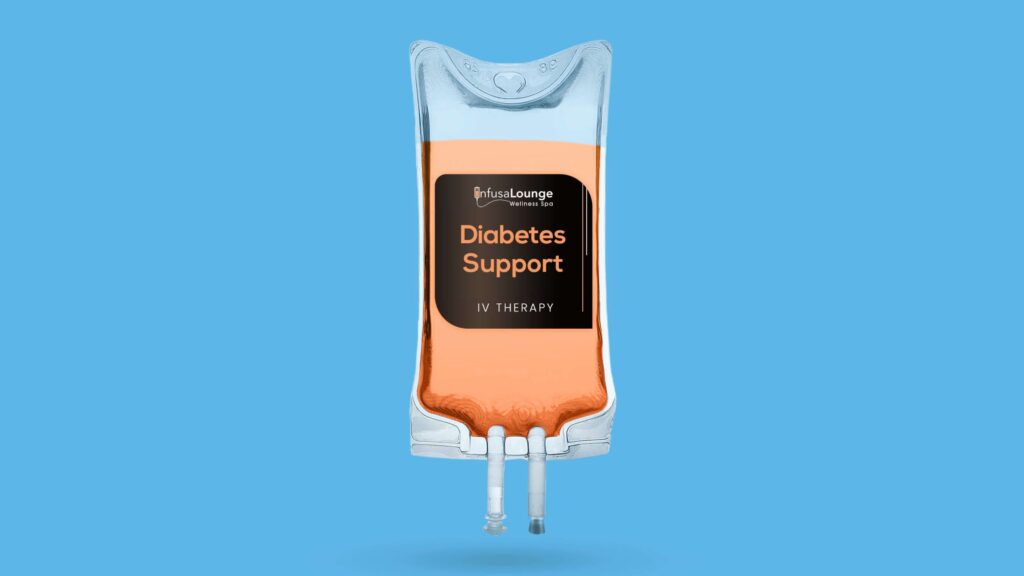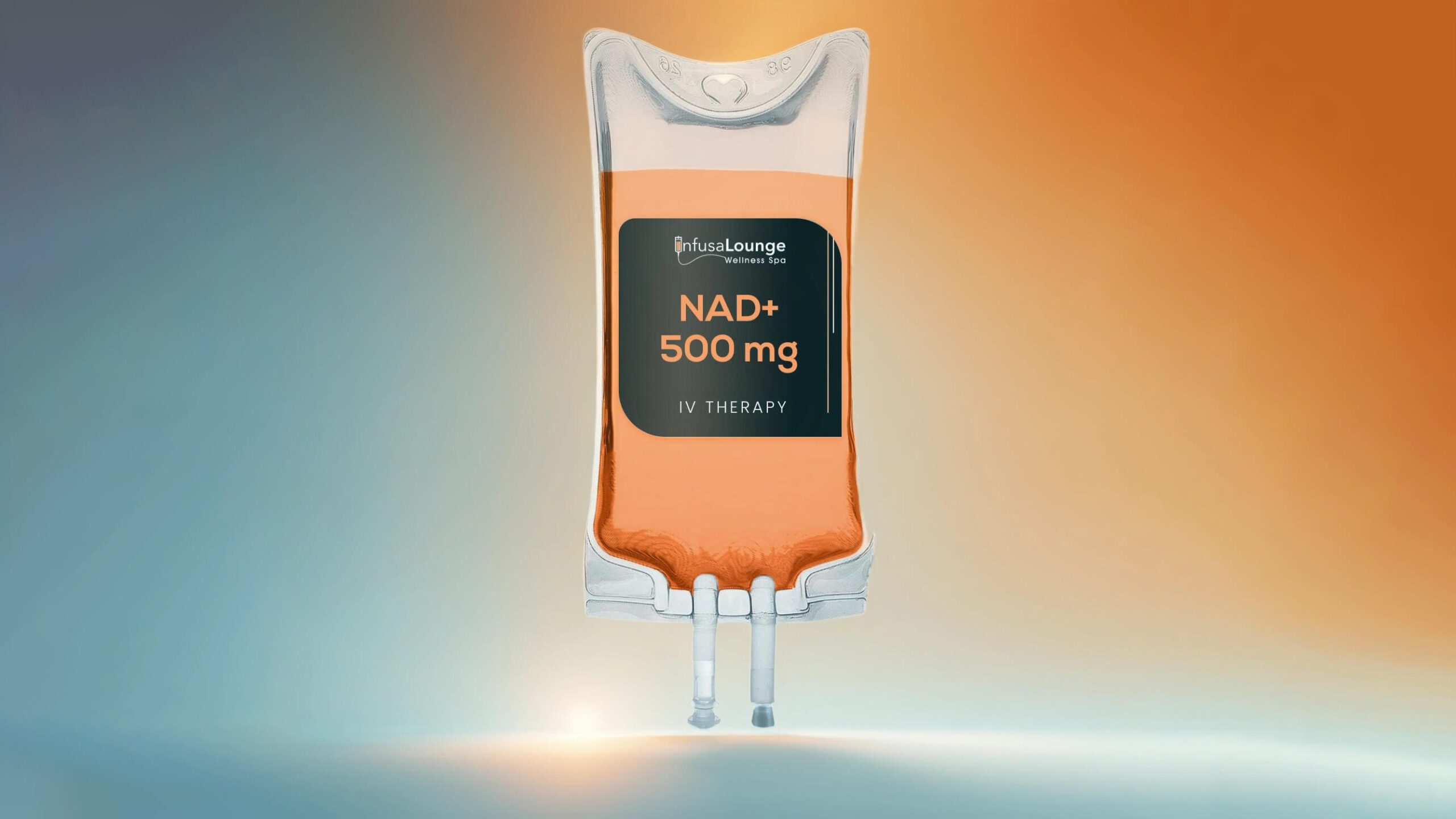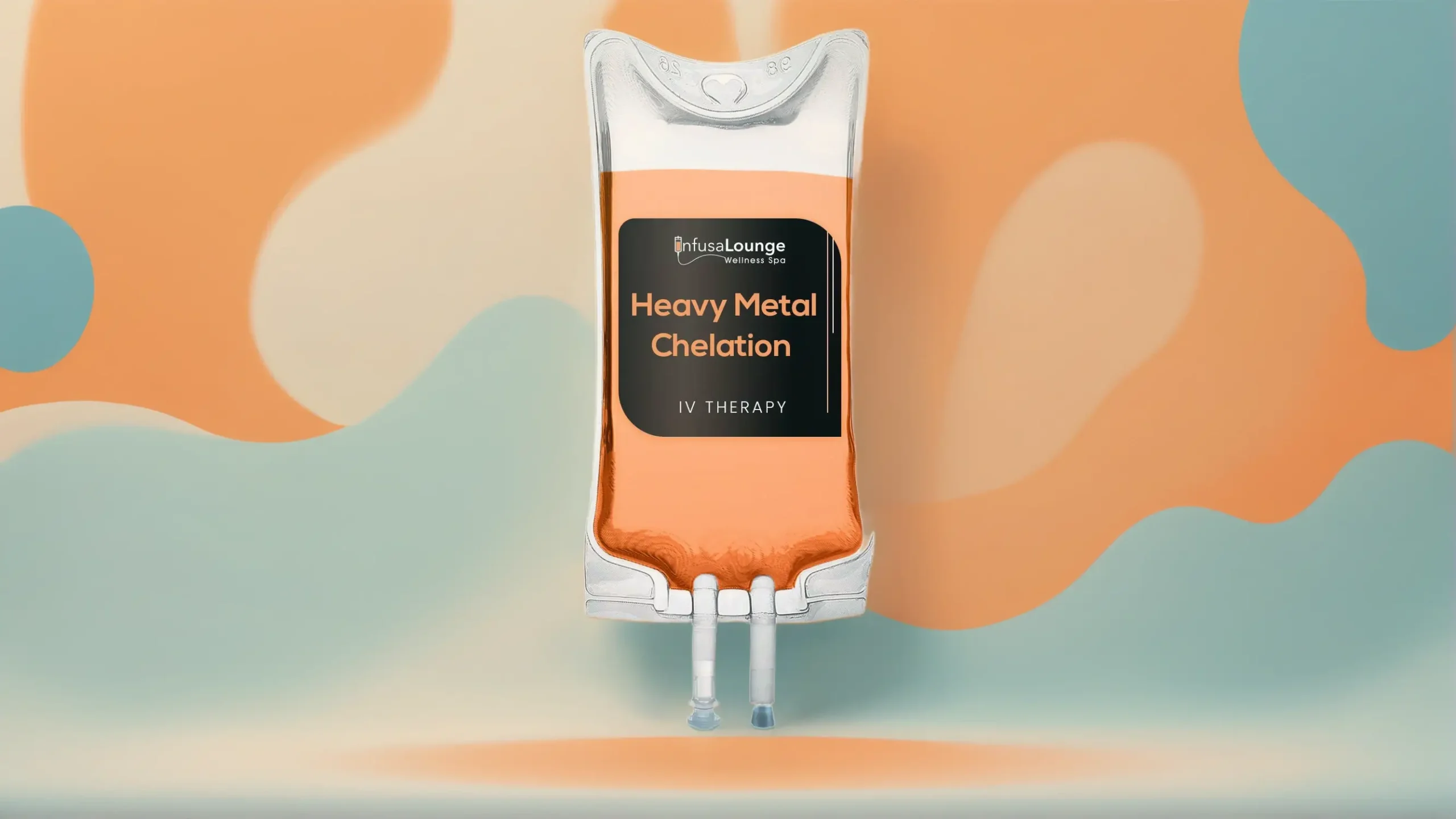Managing diabetes can feel like a complex puzzle, with each piece representing different lifestyle choices and treatments. One treatment option gaining popularity is intravenous (IV) therapy, known for delivering essential nutrients directly into the bloodstream. But how exactly can this innovative approach support blood sugar balance? Research shows that IV therapy can enhance insulin sensitivity, detoxify harmful metals, and introduce powerful antioxidants into the body—all crucial for those managing diabetes. As we explore how IV therapy fits into diabetes care, it’s important to look at how this method may provide immediate benefits while working alongside traditional management strategies. Let’s dive in!

IV therapy supports blood sugar balance in diabetes by enhancing insulin sensitivity, detoxifying harmful metals through chelation therapy, and reducing oxidative stress with antioxidants such as Vitamin C and glutathione. This combined approach not only improves metabolic health but also strengthens immune function, which is crucial for individuals managing diabetes.
Overview of IV Therapy in Diabetes Care
IV therapy, also known as intravenous therapy, offers an innovative approach to delivering vital nutrients and medications directly into the bloodstream. For people managing diabetes, this method is particularly advantageous because it eliminates the digestive process, which can hinder nutrient absorption.
When nutrients are delivered directly into the veins, the body taps into them almost instantly—ensuring nearly 100% absorption of essential vitamins. This rapid delivery can significantly assist in regulating blood sugar levels by providing the body with what it needs without delay.
The beauty of this therapy lies in its tailored approach to individual health needs. Each session can be customized based on a client’s specific requirements, focusing on enhancing insulin sensitivity and overall metabolic health.
One aspect that enhances the value of IV therapy in diabetes care is its ability to provide detoxification. Through chelation therapy, harmful heavy metals are systematically removed from the body. This detoxification process not only contributes to better insulin responsiveness but also reduces oxidative stress—an important element linked to various diabetes complications.
For instance, infusing antioxidants like Vitamin C and glutathione effectively combats oxidative stress, helping patients mitigate risks associated with diabetes-related conditions.
With more than 400 million adults affected globally by diabetes—according to data from the World Health Organization—it’s clear that finding effective treatment strategies is critical.
Importance of Addressing Diabetes
Diabetes isn’t just about high blood sugar; it carries a plethora of health concerns ranging from cardiovascular issues to nerve damage over time. By focusing on comprehensive treatments, including IV therapy, it becomes feasible for individuals to manage these risks proactively.
Furthermore, chelation therapy, often included in IV treatments at personalized facilities like InfusaLounge Wellness Spa in Allen, TX, supports heart health—a vital consideration for diabetic patients.
Patients appreciate that such treatments take place under medical supervision, ensuring that each therapy session is both safe and effective for their specific health challenges.
As you consider innovative approaches like IV therapy for improved diabetes management, don’t forget to think about lifestyle integration. Beyond treatments at the medical spa, adopting nutritional practices and maintaining physical activity can amplify the benefits achieved through IV therapies. Regular consultations with healthcare providers ensure that individuals stay informed and empowered about their diabetes management strategies.
By examining how specialized therapies contribute to overall well-being while tackling unique challenges with diabetes, individuals can prepare themselves for enhanced support in maintaining optimal blood sugar levels.
Blood Sugar Balance and IV Infusion
Managing blood sugar levels is an important aspect of diabetes care. This process becomes more nuanced when you consider that many essential nutrients are crucial for glucose metabolism. The body relies on a variety of vitamins and minerals to function optimally, but diabetic patients may find it challenging to absorb sufficient quantities solely through their diets. That’s where IV therapy shines—providing a steady supply of nutrients directly into the bloodstream, bypassing digestive barriers that often limit absorption.
Stabilizing Blood Sugar with Nutrients
Various nutrients can significantly stabilize blood sugar levels when delivered intravenously. For example, magnesium plays a vital role in insulin sensitivity, which can help your body utilize glucose effectively. Similarly, B vitamins are critical players in carbohydrate metabolism. They assist in converting the food you consume into energy, which is particularly helpful for individuals who struggle with blood sugar management due to diabetes.
It is noteworthy that many patients may not receive adequate amounts of these nutrients through dietary intake alone. Factors such as poor digestion, medication interactions, or dietary restrictions can lead to insufficient nutrient levels. This is where IV therapy establishes an advantage because it ensures 100% absorption of these key vitamins and minerals, maximizing therapeutic benefits.
Understanding the intricacies of the infusion process is crucial for realizing the impact of these vitamins and minerals.
Infusion Process
- Consultation: To begin, a consultation with a healthcare provider helps assess your specific health needs. This personalized approach is paramount; the right infusion should be tailored to address your individual challenges related to blood sugar management.
- Preparation: Once the specific nutrients have been determined, a healthcare professional sets up the IV line and carefully prepares the nutrient mixture. Proper mixing techniques ensure that each element maintains its efficacy throughout the infusion.
- Administration: The infusion process itself typically lasts between 30 and 60 minutes. During this time, patients can relax—perhaps reading a book or enjoying some tranquil music—the focus here is on comfort while allowing nutrients to work their magic.
Having outlined how IV therapy works to support blood sugar balance, let’s now explore the critical vitamins and minerals that play significant roles in managing diabetes more effectively.
Key Vitamins and Minerals for Diabetes
Diabetic care often revolves around essential nutrients that help regulate blood sugar and metabolic functions. Among these crucial players are several vitamins and minerals that can significantly affect how your body responds to insulin and metabolizes glucose.
Crucial Nutrients
Vitamin C
Vitamin C is well-known for its powerful antioxidant properties that protect the body from free radicals. However, its importance in diabetes management extends beyond mere protection. It plays a pivotal role in reducing glycosylation—a process where excess sugar molecules stick to proteins and fats, potentially leading to complications. By ensuring adequate vitamin C intake, individuals may experience enhanced overall metabolic function, making it easier to maintain stable blood sugar levels.
Magnesium
Another critical nutrient is magnesium, which has been shown to be vital for insulin function. Magnesium helps the body use insulin effectively while promoting the absorption of glucose into cells. When magnesium levels are low, individuals can develop increased insulin resistance, making blood sugar management far more challenging. Ensuring sufficient magnesium through diet or supplements can assist in better control over blood glucose levels.
Testimonial
“After starting diabetic support IV therapy, my blood sugar levels have been more stable,” says patient John D. from Allen, TX.
Incorporating these key vitamins and minerals into your routine—whether through dietary changes or intravenous therapy—can support your body’s ability to manage diabetes more effectively. This holistic approach establishes a foundation that enhances well-being while paving the way for greater insights into the specific advantages IV therapy offers for diabetic management.
Benefits of IV Therapy for Diabetics
One of the most significant benefits of IV therapy for diabetics is the ability to address multiple health concerns simultaneously. When living with diabetes, it’s essential to manage not only your blood sugar levels but also various complications that may arise. This comprehensive approach can lead to improved quality of life, allowing individuals to feel better overall while managing their condition effectively.
Enhanced Absorption
Since IV therapy bypasses the digestive system, it ensures nearly full absorption of the infused nutrients. This is particularly useful for diabetics who may face gastrointestinal challenges or nutrient malabsorption due to their condition. For instance, when vitamins and minerals enter the bloodstream directly, there’s a considerable reduction in issues like nausea or delayed gastric emptying that often accompany oral supplementation.
Immediate bioavailability means that patients experience rapid improvements in energy and overall wellness, which can be truly life-changing.
In addition, certain nutrients like magnesium and Vitamin C play crucial roles in supporting insulin function and regulating blood sugar. With these vital nutrients delivered directly via IV, diabetics can see more substantial benefits when it comes to managing their conditions.
Rapid Effects
A study published in the Journal of Clinical Endocrinology & Metabolism found that IV magnesium significantly improved insulin sensitivity within just four weeks of treatment. This rapid effect emphasizes how quickly IV therapy can address deficiencies and help restore balance in the body.
This is not just a fleeting moment; think of this as a catalyst for change. The positive impact on energy levels and metabolism demonstrates that improving insulin function through IV therapy offers substantial advantages beyond what traditional therapies might provide.
Furthermore, beyond the absorption and speed, there are ongoing benefits from regular IV therapy sessions that contribute to metabolic health and longevity for those with diabetes.
Ongoing Wellness Support
Regular sessions can bring sustained improvements in energy levels, immune function, and emotional health. By continuously providing your body with essential nutrients through IV therapy, you’re bolstering your defenses against potential complications such as cardiovascular issues or neuropathy.
Of course, it’s important to remember that while these therapies enhance well-being, they do not substitute a balanced diet or regular medical care. Instead, they supplement your existing treatments by promoting better nutrient intake and overall health.
It’s about creating a sustainable path towards better health—one where you feel empowered to manage your diabetes effectively while embracing a lifestyle full of energy and vitality.
As we further explore this topic, let’s examine how these treatments specifically enhance insulin function and support greater metabolic efficiency.
Enhancing Insulin Function with IV Therapy
Efficient insulin function is truly a cornerstone of effective diabetes management, and this is where individualized nutritional support can make a difference. Imagine a scenario where the body’s natural processes are improved by the precise delivery of nutrients via IV infusion. This method allows for higher absorption rates compared to oral ingestion—often as high as 100%—which means the body receives exactly what it needs to optimize insulin action.
Key Nutrients Enhancing Insulin
The following key nutrients stand out for their remarkable ability to enhance insulin function:
- Chromium: This essential trace element plays a significant role in improving insulin sensitivity. Studies have shown that chromium supplementation can help lower blood sugar levels, making it particularly beneficial for those struggling to achieve glycemic control.
- Alpha-Lipoic Acid: Often praised for its antioxidant properties, alpha-lipoic acid has been found to improve insulin sensitivity significantly. Moreover, it also contributes to reducing symptoms such as neuropathy in diabetic patients, providing them with an added quality of life enhancement.
- Vitamin D: Though frequently associated with bone health, vitamin D also has a crucial role in glucose metabolism. High doses of Vitamin D, like those administered at InfusaLounge, can enhance both insulin production and overall sensitivity. With a remarkable dose of 200,000 IU, this nutrient can support not only blood sugar regulation but also bolster immune function.
As you reflect on these nutrients, consider how they serve as powerful allies in the battle against diabetes. They don’t just supplement your treatment plan; they tailor the management strategy to your unique biochemical makeup and lifestyle demands.
Personalized Treatment Plans
At InfusaLounge, we pride ourselves on creating personalized IV therapy plans that fit individual patient needs perfectly. We recognize that diabetes is not one-size-fits-all; rather, each person’s experience is distinctly personal. For example, a patient exhibiting severe insulin resistance may require higher doses of chromium and alpha-lipoic acid to effectively bolster their body’s response to insulin.
This tailored approach ensures that each therapy session focuses on your specific health goals, setting the stage for improved outcomes in insulin management and overall wellness.
Understanding your unique health profile is essential before diving into any treatment plan. This consideration leads us naturally into examining the nuances of safety and personalization in therapy options.
Is IV Therapy Right for You?
As you navigate your journey with diabetes, deciding whether IV therapy is suitable for your unique circumstances requires thoughtful reflection. It’s not just a quick fix but a commitment that aligns with your medical needs and personal health goals. The first step is understanding how this therapeutic approach could integrate into your existing wellness strategy.
Factors to Consider
One major factor to consider when evaluating IV therapy is your medical history. It’s crucial to have an open dialogue with your healthcare provider so they can help tailor a plan that suits you best. They’ll look at any pre-existing conditions, current medications, and potential allergies to ensure that the therapy will be both safe and beneficial.
For instance, if you’re taking medications that affect kidney function, some types of infusions may not be appropriate for you.
Regular communication with a healthcare professional ensures the therapy fits within your overall diabetes management plan.
Personal Anecdote
A great example is Maria, who had been living with diabetes for years. Initially skeptical about the effectiveness of IV therapy, she took the plunge after thorough discussions with her doctor. Her concerns were acknowledged and addressed, leading to a personalized treatment plan that considered all her health aspects.
“I noticed a significant drop in my blood sugar levels within a few weeks,” she reflects with enthusiasm. “The customized approach made all the difference in my daily life.”
If you’re curious to explore how IV therapy might enhance your diabetes management— inspired by stories like Maria’s—consider visiting InfusaLounge to learn more about our specialized services and schedule a consultation.
Incorporating IV therapy into your diabetes management could improve your health outcomes and quality of life significantly. For further information, don’t hesitate to reach out and begin your journey towards better health today!
FREQUENTLY ASKED QUESTIONS:
Can IV therapy replace traditional diabetes management strategies, such as diet and exercise?
IV therapy can be a supportive treatment option for diabetes management but should not replace traditional strategies like diet and exercise. While studies suggest that certain nutrients delivered via IV may contribute to better blood sugar control, they are most effective when combined with lifestyle changes. According to the American Diabetes Association, approximately 58% of type 2 diabetes cases can be prevented or delayed through lifestyle modifications, highlighting the essential role of diet and exercise in overall diabetes management.
Are there any risks or side effects associated with receiving IV therapy for diabetes?
Yes, there are some risks and side effects associated with receiving IV therapy for diabetes management. Common risks include infection at the injection site, phlebitis (inflammation of the vein), and electrolyte imbalances. According to a study published in “Diabetes Care,” around 5% of patients may experience mild complications from IV therapy. It is vital for individuals to consult with healthcare professionals before starting any IV treatment to ensure it complements their diabetes management plan safely.
How frequently should an individual with diabetes undergo IV therapy to achieve optimal results for blood sugar balance?
The frequency of IV therapy for individuals with diabetes can vary based on individual needs and medical advice, but many healthcare providers suggest a schedule ranging from weekly to monthly sessions. Research indicates that regular infusions of vitamins and minerals, such as magnesium and chromium, can support insulin sensitivity and overall metabolic health. For instance, a study published in 2021 found that patients receiving IV micronutrient therapy saw an improvement in their blood glucose levels by approximately 20% over three months. However, it’s crucial to consult with a healthcare professional to establish a personalized plan that considers each individual’s unique condition and treatment goals.
How does IV therapy compare to oral medication or other forms of treatment for blood sugar control?
IV therapy can offer a more immediate and effective delivery of essential nutrients and medications for blood sugar control compared to oral medications, which must first pass through the digestive system, resulting in slower absorption and potentially reduced efficacy. For instance, studies have shown that patients receiving specific nutrient infusions intravenously often achieve better glycemic control within hours, whereas oral treatments may take days to reach optimal levels. Furthermore, IV therapy can bypass gastrointestinal issues common in diabetic patients, enhancing overall treatment success rates by up to 30% in some cases.
What specific nutrients or compounds are typically included in IV therapy for diabetes management?
IV therapy for diabetes management often includes nutrients such as magnesium, chromium, and B vitamins, which play crucial roles in glucose metabolism. Magnesium has been shown to improve insulin sensitivity, while chromium enhances the action of insulin. A study published found that individuals with diabetes who received chromium supplementation showed a 25% improvement in glycemic control. Additionally, B vitamins are vital for energy production and may help mitigate neuropathic symptoms associated with diabetes. By delivering these nutrients directly into the bloodstream, IV therapy can provide a rapid and effective means of supporting overall blood sugar balance.







